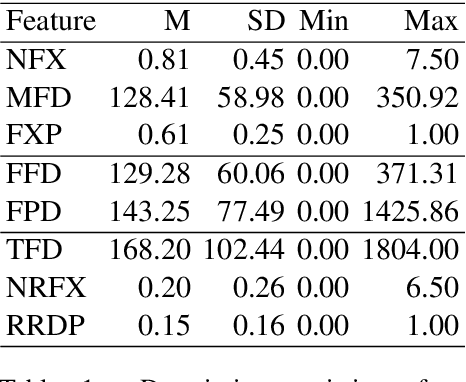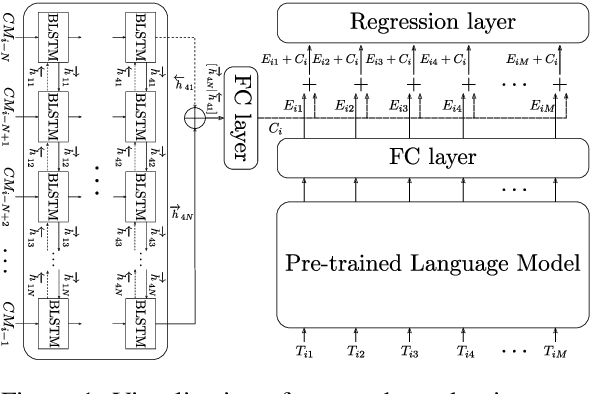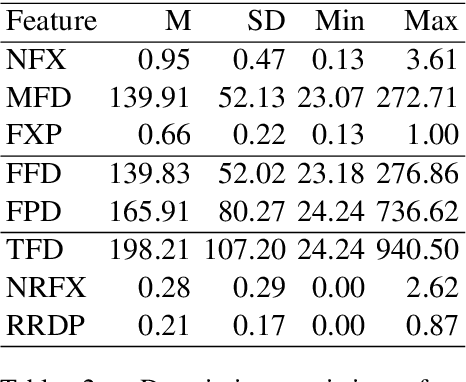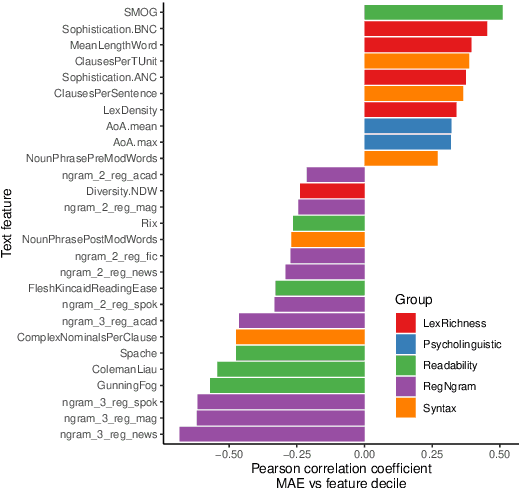Measuring the Impact of (Psycho-)Linguistic and Readability Features and Their Spill Over Effects on the Prediction of Eye Movement Patterns
Paper and Code
Mar 15, 2022



There is a growing interest in the combined use of NLP and machine learning methods to predict gaze patterns during naturalistic reading. While promising results have been obtained through the use of transformer-based language models, little work has been undertaken to relate the performance of such models to general text characteristics. In this paper we report on experiments with two eye-tracking corpora of naturalistic reading and two language models (BERT and GPT-2). In all experiments, we test effects of a broad spectrum of features for predicting human reading behavior that fall into five categories (syntactic complexity, lexical richness, register-based multiword combinations, readability and psycholinguistic word properties). Our experiments show that both the features included and the architecture of the transformer-based language models play a role in predicting multiple eye-tracking measures during naturalistic reading. We also report the results of experiments aimed at determining the relative importance of features from different groups using SP-LIME.
 Add to Chrome
Add to Chrome Add to Firefox
Add to Firefox Add to Edge
Add to Edge